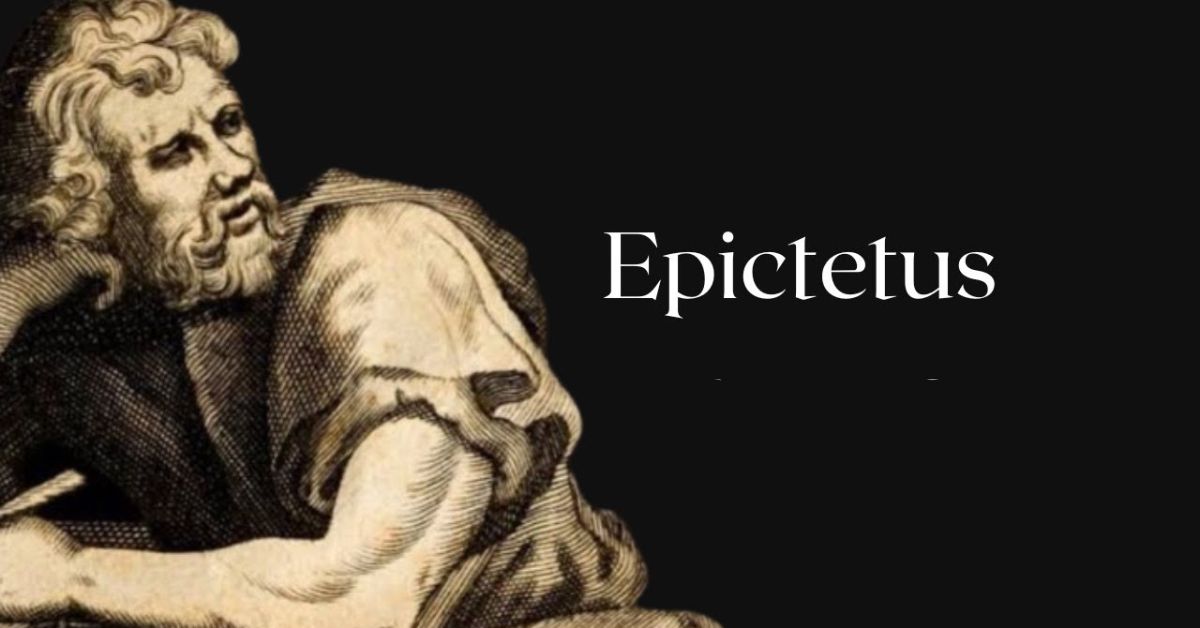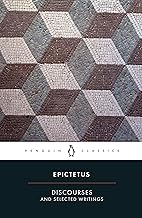
How to Read Epictetus's Books on Stoicism
How to Read Epictetus's Works on Stoicism
Estimated Reading Time: 10-12 minutes
Introduction
Epictetus, a former slave turned philosopher, stands as one of the most influential figures in the Stoic tradition. Born around 55 AD in Phrygia (modern-day Turkey), he spent much of his life in Rome, where he developed a philosophy that emphasized the importance of personal freedom, ethical living, and the power of the mind. His teachings, primarily recorded by his student Arrian in the form of the "Discourses," offer profound insights into how to navigate the challenges of life with grace and resilience.
What makes Epictetus's perspective on Stoicism unique is his focus on the distinction between what is within our control and what is not. This fundamental principle not only empowers individuals to take responsibility for their thoughts and actions but also liberates them from the burdens of external circumstances. In a world rife with uncertainty, Epictetus's teachings resonate deeply, providing timeless guidance on how to cultivate inner peace and virtue.
Why Epictetus's Perspective Matters
Epictetus's approach to Stoicism is distinctive for several reasons:
-
Practicality: Unlike some philosophers who engage in abstract theorizing, Epictetus grounds his teachings in practical advice. He emphasizes actionable steps that individuals can take to improve their lives and mental well-being.
-
Focus on Inner Freedom: His philosophy centers on the idea that true freedom comes from within. By mastering our thoughts and reactions, we can achieve a state of tranquility regardless of external conditions.
-
Ethical Living: Epictetus underscores the importance of ethics in personal development. He argues that living in accordance with nature and virtue is essential for achieving a fulfilling life.
The impact of Epictetus's ideas extends beyond ancient Rome; they continue to influence modern psychology, self-help literature, and personal development practices. His teachings encourage individuals to cultivate resilience and mindfulness, making them relevant for anyone seeking to navigate the complexities of contemporary life.
Overview of Recommended Books
Discourses
The "Discourses" is a collection of teachings that captures the essence of Epictetus's philosophy. This work is divided into four books, each addressing various aspects of Stoicism and offering practical guidance for living a virtuous life.
Main Themes and Arguments:
- Control and Acceptance: Epictetus emphasizes the importance of distinguishing between what we can control (our thoughts, intentions, and actions) and what we cannot (external events, other people's actions). This distinction is crucial for achieving peace of mind.
- The Role of Reason: He advocates for the use of reason as a tool for understanding the world and our place within it. Rational thinking allows us to respond to life's challenges with wisdom rather than emotional turmoil.
- Virtue as the Highest Good: Epictetus posits that virtue is the only true good and that external possessions or status are indifferent. Living virtuously is the path to true happiness.
Historical Context and Significance: The "Discourses" were written during a time when Stoicism was gaining traction among Roman elites. Epictetus's teachings reflect the socio-political climate of the Roman Empire, where individuals sought stability and meaning amidst uncertainty. His work serves as a bridge between classical Stoicism and later philosophical developments, influencing thinkers like Seneca and Marcus Aurelius.
Key Insights and Takeaways:
- Practice Mindfulness: Regularly reflect on what is within your control and what is not. This practice can help reduce anxiety and foster a sense of empowerment.
- Embrace Adversity: View challenges as opportunities for growth. Epictetus teaches that adversity can strengthen character and resolve.
- Cultivate Gratitude: Focus on what you have rather than what you lack. Gratitude shifts perspective and enhances overall well-being.
Why Read This Book: The "Discourses" is essential reading for anyone interested in Stoicism because it provides a comprehensive understanding of the philosophy's core principles. Readers seeking practical wisdom, ethical guidance, and strategies for personal growth will find Epictetus's insights invaluable.
Key Themes and Sections
The "Discourses" is rich with themes that explore different dimensions of Stoicism:
-
Philosophy as a Way of Life: Epictetus insists that philosophy is not merely an academic pursuit but a practical guide for living. He encourages readers to apply Stoic principles in daily life.
-
The Nature of Desire: He examines how desires can lead to suffering if they are misaligned with virtue. Understanding the nature of desire helps individuals cultivate a more balanced approach to life.
-
Interpersonal Relationships: Epictetus discusses the importance of treating others with respect and understanding, emphasizing that our reactions to others are within our control.
-
Death and Impermanence: He addresses the inevitability of death, encouraging readers to view it as a natural part of life rather than something to fear. This perspective fosters acceptance and tranquility.
These themes build upon one another, creating a cohesive framework for understanding Stoicism. As readers progress through the "Discourses," they will find that each section reinforces the importance of internal mastery and ethical living.
Who Would Benefit from Reading These Books
The "Discourses" appeals to a wide range of readers:
- Students and Academics: Those studying philosophy, ethics, or psychology will find Epictetus's insights invaluable for understanding Stoicism's historical and intellectual context.
- General Readers Interested in Stoicism: Individuals seeking to explore Stoic philosophy will appreciate the accessible language and practical advice offered in the "Discourses."
- Professionals Seeking Practical Wisdom: Business leaders, educators, and anyone facing high-stress environments can benefit from Epictetus's teachings on resilience and emotional regulation.
- Anyone Looking for Personal Growth and Self-Improvement: The principles outlined in the "Discourses" provide actionable steps for anyone seeking to enhance their mental well-being and ethical living.
Recommended Reading Order
To maximize the benefits of the "Discourses," consider the following reading order:
-
Begin with Book One: This section introduces the foundational concepts of Stoicism, including the importance of distinguishing between what is within our control and what is not. It sets the stage for the rest of the work.
-
Focus on Book Two: Here, Epictetus delves deeper into the nature of desire and how it can lead to suffering. This section is crucial for understanding the Stoic approach to emotional regulation.
-
Advanced Study with Book Three and Four: These final books explore interpersonal relationships and the acceptance of death. They provide a comprehensive view of how Stoicism can be applied to various aspects of life.
Tips for Getting the Most Out of This Foundational Work:
- Take notes on key insights and reflect on how they apply to your life.
- Engage in discussions with others interested in Stoicism to deepen your understanding.
- Consider keeping a Stoic journal to track your thoughts and progress as you apply Epictetus's teachings.
Conclusion
Epictetus's contributions to Stoicism offer profound insights into the nature of human existence and the pursuit of a virtuous life. His teachings encourage us to cultivate inner freedom, embrace adversity, and live ethically. By exploring the "Discourses," readers will not only gain a deeper understanding of Stoicism but also practical tools for navigating the complexities of modern life.
As you embark on this philosophical journey, remember that the wisdom of Epictetus is timeless, providing guidance for personal growth and resilience. Let his teachings inspire you to cultivate a life of virtue, mindfulness, and inner peace.
Featured Books

Discourses
by Epictetus
Published: 135
A new translation of the influential teachings of the great Stoic philosopherDespite being born into slavery, Greco-Roman philosopher Epictetus became one of the most influential thinkers of his time. Discourses and Selected Writings is a transcribed collection of informal lectures given by the philosopher around AD 108. A gateway into the life and mind of a great intellectual, it is also an important example of the usage of Koine or “common” Greek, an ancestor to Standard Modern Greek.